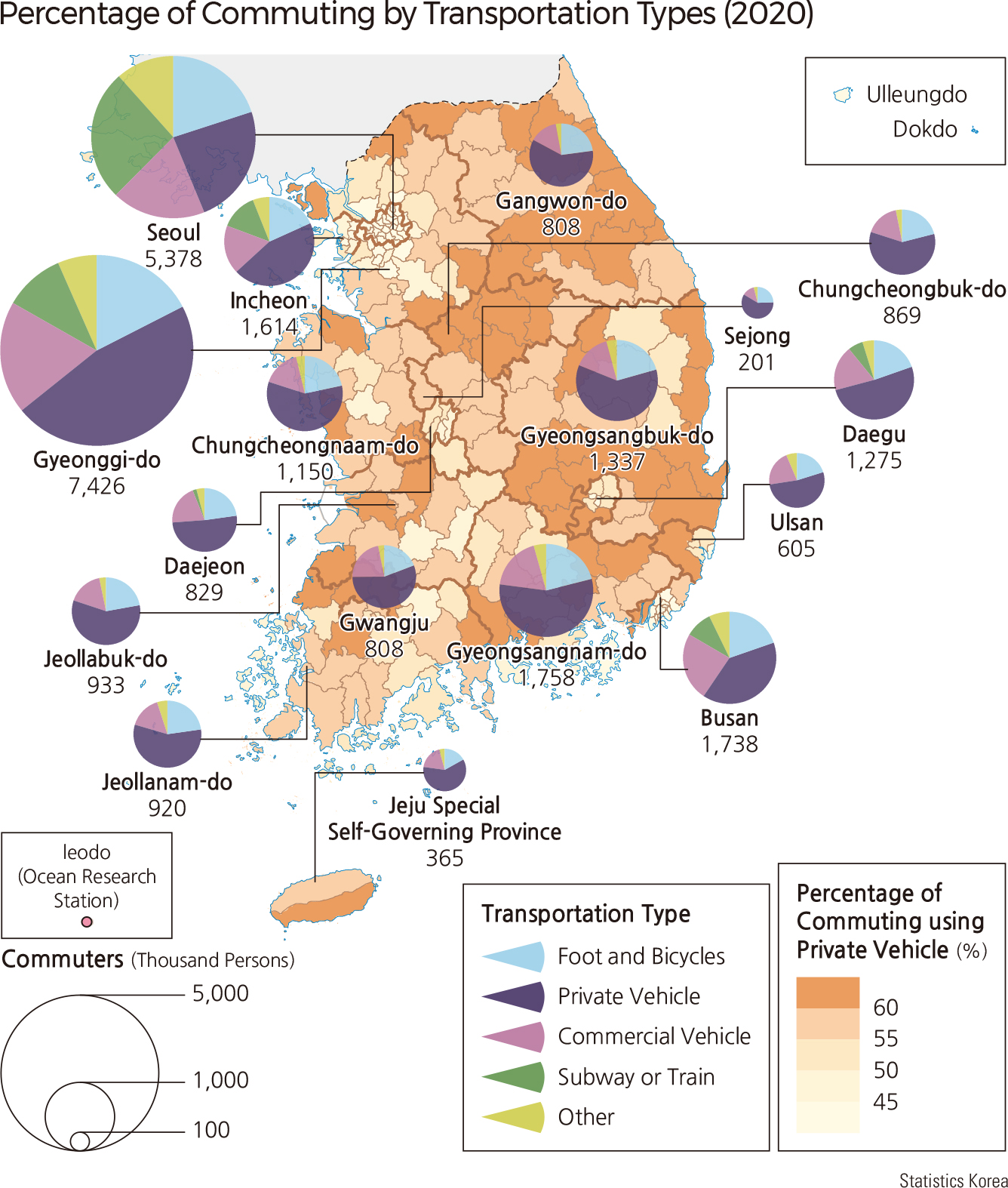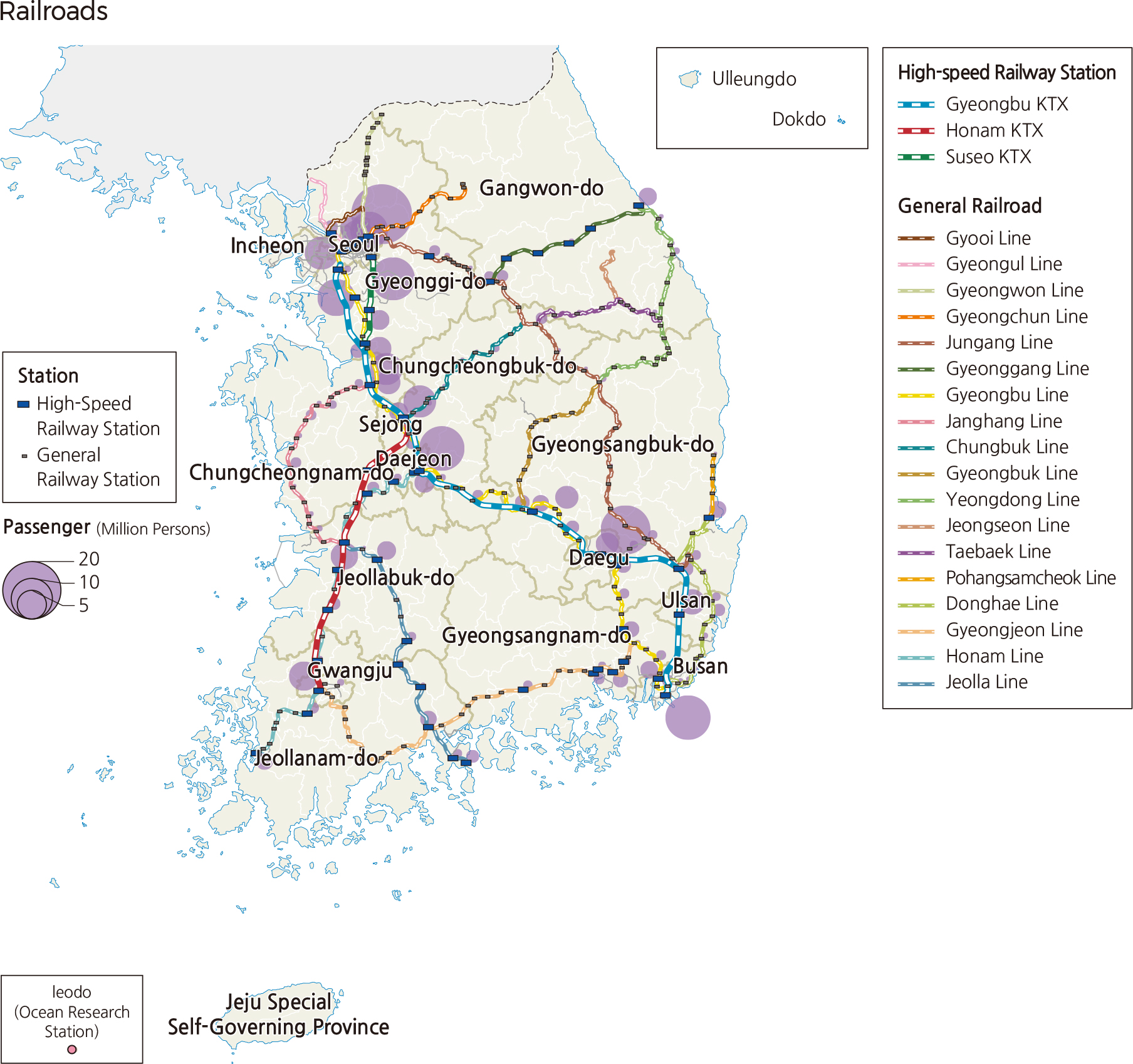Comprehensive Edition 2022
The development of an efficient transportation network, with highways, airports, and high-speed railways has made it possible for travelers to move from point-to-point anywhere within Korea within a half-day. Korea’s entry into modern transportation began with railways and airfields that the Japanese built to invade Korea and seize its resources during the colonial period. In 1955, diesel engine locomotives and a subway system were introduced while double-track railway projects were also promoted. The modernization of rail traffic has been ongoing, and in 2004 the Seoul-Busan High Speed Railway began operation. Korea’s air transportation entered a new chapter with the opening of the ultra-modern Incheon International Airport on Yeongjong Island in 2001.
As economic development gained momentum, transportation infrastructures were rapidly built to support the transformation. Numerous important industries were developed between Seoul and Busan, and this region needed a transportation network in order to service those industries. The most notable project was the 428 km Gyeongbu Expressway, opened in 1970.
In 2020, 28.01 million people, or 61.8% of the nation's 45.34 million people aged 12 and over, were commuting to work or school. Of these, 23.29 million are work commuters, and 4.73 million are school commuters. The commuting rate for men is higher than for women. Because of the impact of COVID-19, the number of commuters and commuting rates decreased in 2020 compared to 2015. The commuting rate is highest in the Seoul Metropolitan Area and regional central cities.
The transportation methods used for commuting are private vehicles (46%), by foot and bicycle (20%), riding commercial vehicles such as buses (19%), subway or trains (10%), and others. In Seoul and other large cities, train use is higher and private vehicle use lower than in other areas. In Seoul, the most-used means of transportation is the subway, which accounts for 26% of trips to work or school. Meanwhile, the national average commute time is 30 minutes one way. Daily commutes are longest in -do areas, followed by metropolitan cities, and the Seoul Metropolitan Area, in order of average commute time. In the Seoul Metropolitan Area, 22% of commuters take more than 60 minutes one way, and 7% take more than 90 minutes. Korea's average commuting time is more than twice that of the Organization for Economic Co-operation and Development (OECD) countries. |





